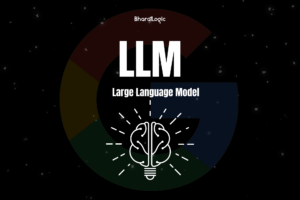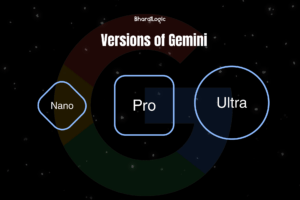Google renames Bard AI to Gemini, Here’s why
Google has been channeling significant resources into AI development over the past few years, aiming to enhance its flagship products like Search and others. However, the company’s approach to naming its AI-powered tools has often left users scratching their heads, with a multitude of products bearing different names.
To address this confusion and streamline its AI offerings, Google recently made a pivotal decision – to consolidate all its AI initiatives under a single, unified brand: Gemini.
Google’s Approach to AI Branding
In a sweeping rebranding effort, Google announced that its various AI projects, including the widely-used artificial intelligence chatbot and assistant known as Bard, will now be known collectively as Gemini. This move extends to other prominent Google products like Workspace applications such as Gmail and Docs, which will also adopt the Gemini moniker.
By bringing together its diverse AI endeavors under one cohesive brand, Google aims to provide users with a clearer and more cohesive experience, while also signaling its commitment to advancing AI technology across its ecosystem.
Introduction of Gemini Large Language Model (LLM)

Gemini, Google’s powerful large language model (LLM), serves as the backbone of Bard, offering advanced text generation capabilities, conversational abilities, and even code generation. Launched in December last year, Gemini 1.0 comes in three distinct plans: Gemini Ultra, Gemini Pro, and Gemini Nano.
How does Gemini, Google’s chatbot, work?
Google’s chatbot Gemini works using several large language model (LLM) upgrades. Initially known as Bard, it employed a lightweight version of LaMDA, a language model built on Google’s neural network architecture called Transformer.
However, users were not impressed with its performance, so Google upgraded it to PaLM 2 at Google I/O 2023. PaLM 2 is an advanced version of PaLM, allowing Gemini to be more efficient and perform better than its original model.
In December 2023, Google further upgraded Gemini to become its most capable and advanced LLM to date, also named Gemini. This version utilizes a fine-tuned version of Gemini Pro for English.
Google’s decision to use its own LLMs, LaMDA, PaLM 2, and Gemini, distinguishes it from other popular AI chatbots like ChatGPT and Copilot, which utilize the GPT series language model.
Different Versions of Gemini

Gemini Nano: This smaller version of the LLM is designed to support the Gemini chatbot on smartphones and handle on-device tasks efficiently.
Gemini Pro: Offering a larger and more capable model, Gemini Pro serves as the powerhouse behind the free version of the Gemini AI chatbot.
Gemini Ultra: Representing Google’s most robust LLM, Gemini Ultra powers the Gemini Advanced AI chatbot, delivering unparalleled performance and sophistication.
To further enhance user accessibility, Google has introduced a dedicated Gemini app for Android users. While iOS users await a similar app, they can still anticipate experiencing Gemini features within the Google app on iOS in the near future.
The Google mobile app serves as the primary platform for users to interact with Gemini. Users have the option to set Gemini as their default assistant within the app. While Google has not explicitly stated plans to phase out Assistant, there has been a gradual shift away from prioritizing Assistant in recent times, hinting at a potential transition to Gemini as the primary AI assistant in the future.
Also: How to Use Artificial Intelligence to Boost Your Website’s SEO
Introduction of Gemini Advanced

Google’s announcement also introduces Gemini Advanced, offering users access to Gemini Ultra 1.0, Google’s most extensive and advanced AI model to date.
Sissie Hsiao, vice president and general manager of Gemini, explained in a blog post, “With our Ultra 1.0 model, Gemini Advanced excels at highly complex tasks such as coding, logical reasoning, following nuanced instructions, and collaborating on creative projects. Gemini Advanced not only enables longer and more detailed conversations, but also possesses a better understanding of context from previous prompts.”
Google Gemini is specifically designed for native advertising placement. It offers ad placements within native content feeds on various popular websites and apps.
Google’s Commitment to AI Advancement
The rebranding and introduction of a new AI app underscore Google’s commitment to advancing and investing in AI assistants, ranging from chatbots to coding aids. During a recent earnings call, Alphabet CEO Sundar Pichai articulated his vision of ultimately having an AI agent capable of handling an increasing array of tasks on behalf of users.Pichai added.
It just gives you more capabilities, it is particularly good at complex queries, multiturn queries, it has very good workspace integration, it is built from the ground up to be natively multimodal so when you attach images and queries it really shines.
Another indication of Gemini’s significance to Google is the introduction of a toggle at the top of the app, enabling users to switch between Search and Gemini. Given that Search has been the cornerstone of the company since its inception, this move suggests that Gemini holds comparable importance in Google’s strategic priorities.
Introduction of Gemini AI Subscription
Google has introduced a new AI subscription tailored for power users seeking access to Gemini Ultra 1.0. Priced at $19.99 per month through Google One, the company’s paid storage service, the subscription offers existing Google One paid subscribers a two-month free trial.
This move signals Google’s full-fledged commitment to becoming an AI-driven company. As such, the upcoming phase of the Gemini era may shape Google’s future trajectory. In this endeavor, the search engine giant will face competition from formidable AI rivals such as OpenAI, Perplexity, Anthropic, and others.
A competitive market for AI
Google has announced its new Gemini Advanced service, addressing the growing interest in generative AI and the need for safe and transparent usage in the private sector. Available in English across 150 countries and territories, Google plans to expand the service to more languages in the future. Additionally, Google Cloud has partnered with Kyndryl, who will leverage Gemini-powered AI services to enhance outcomes for their customers.
We encourage you to take advantage of AI and see the benefits that custom software development by Bharatlogic can bring to your business. Learn more about how we can help drive your business forward with our custom software solutions.

